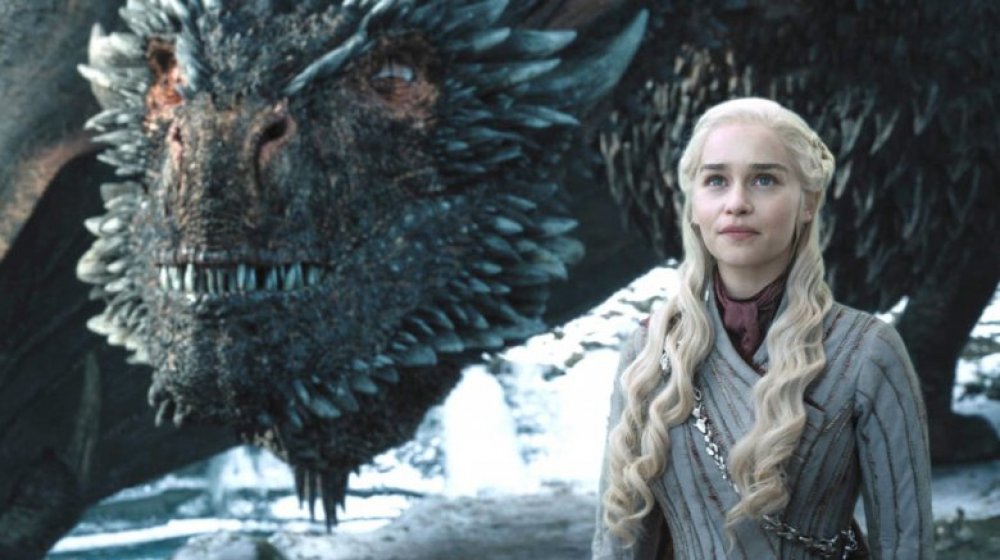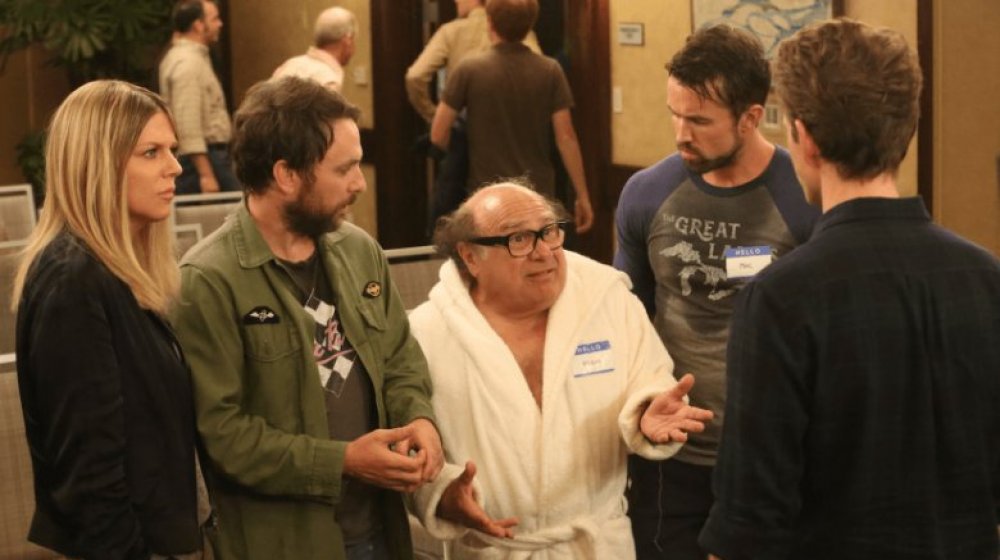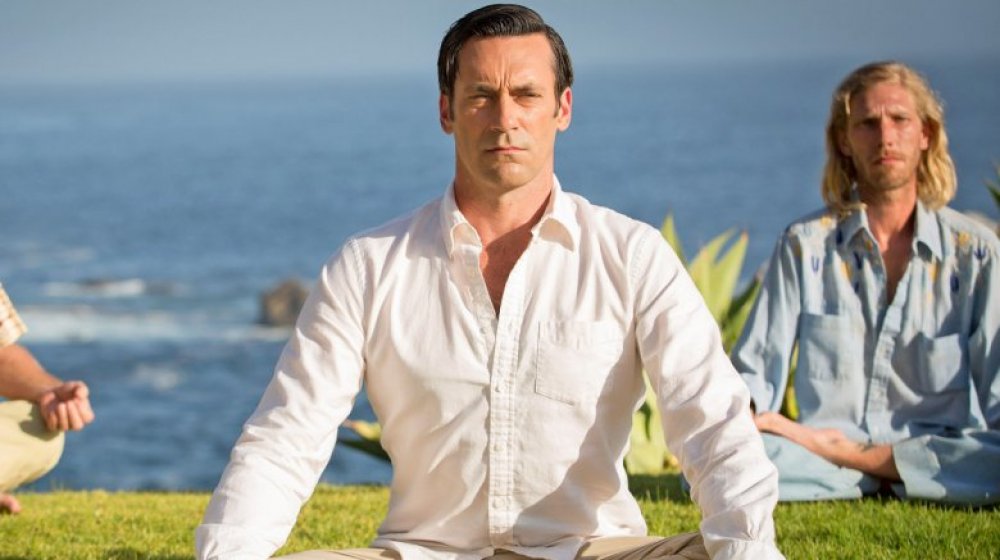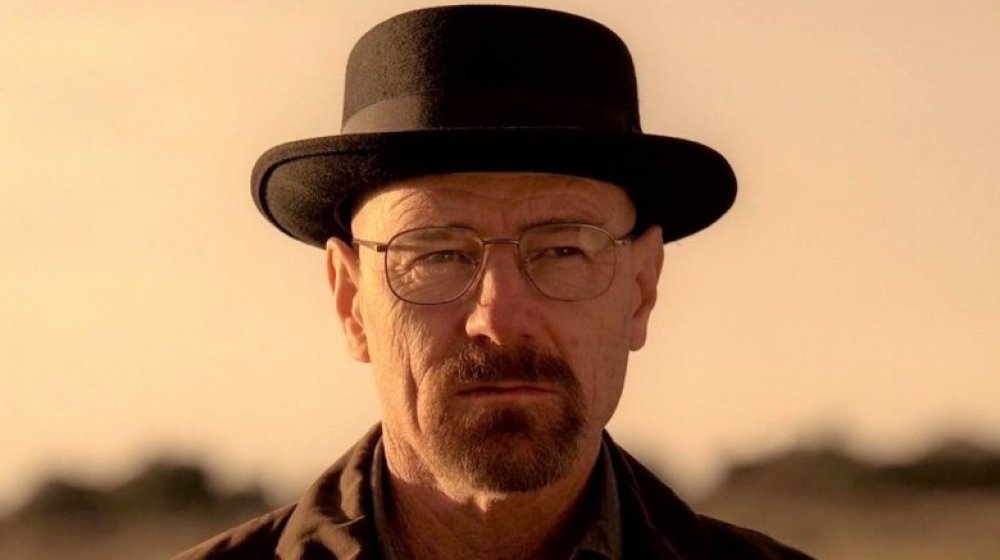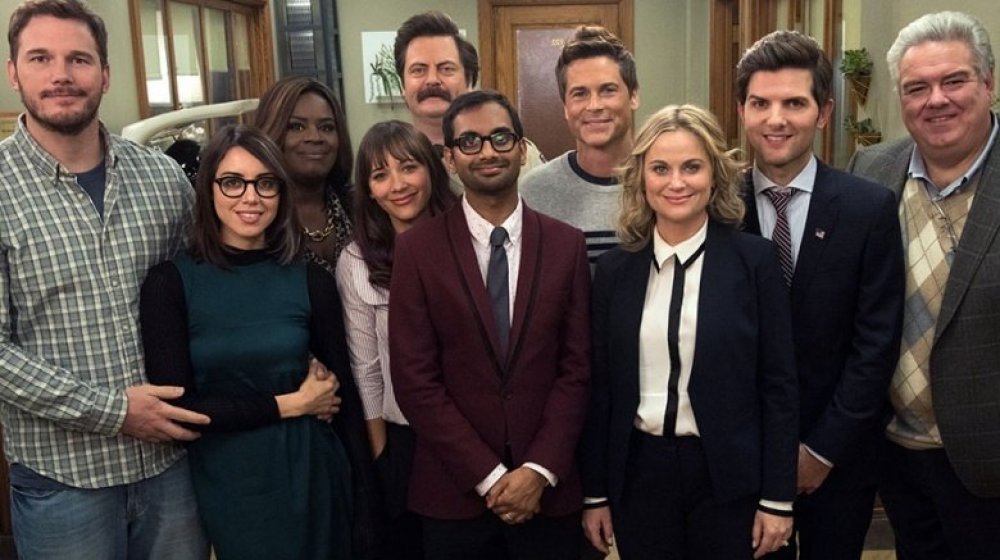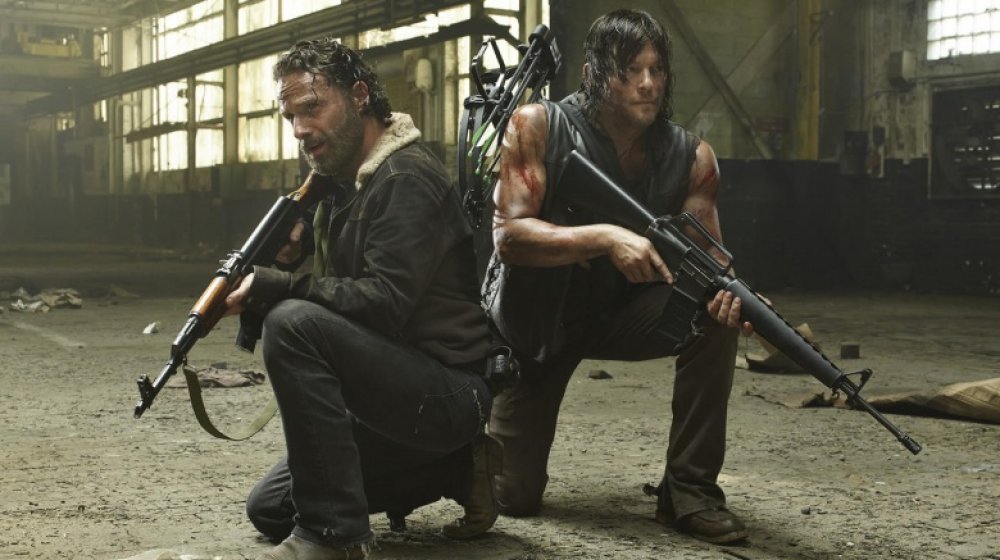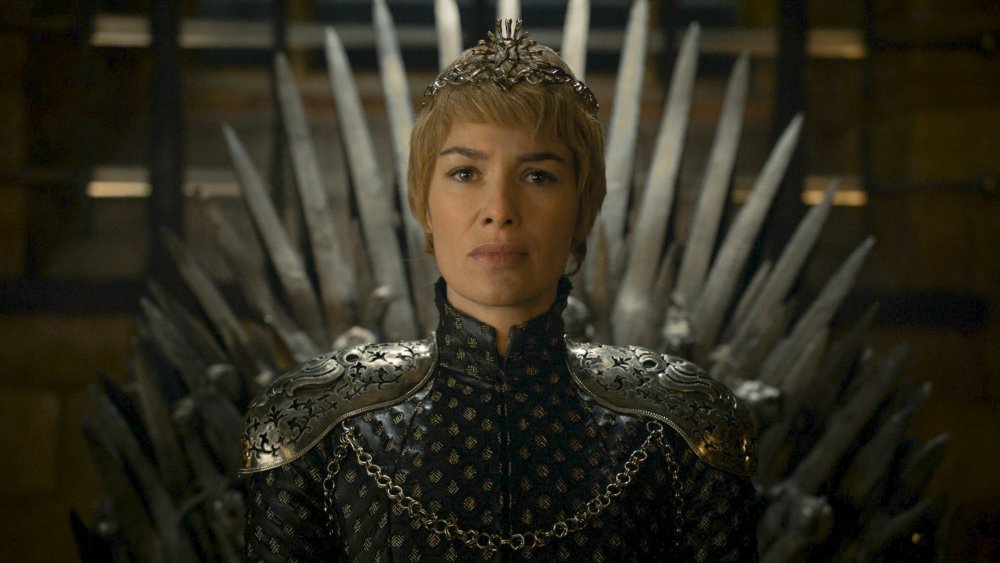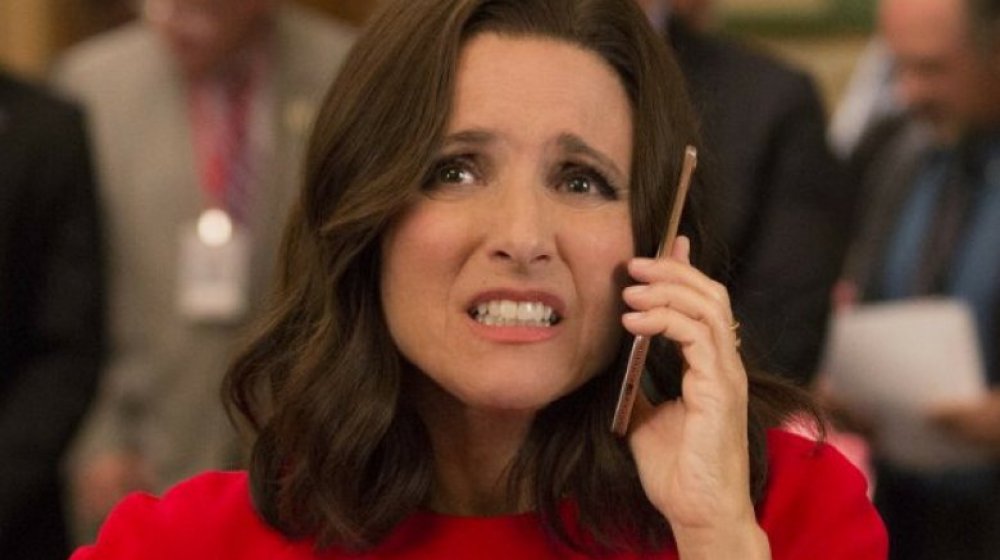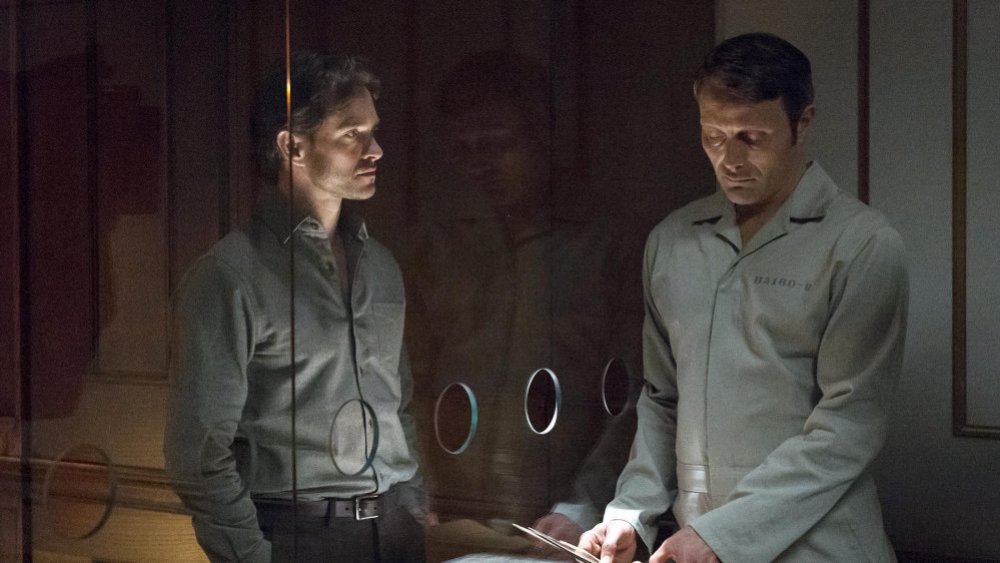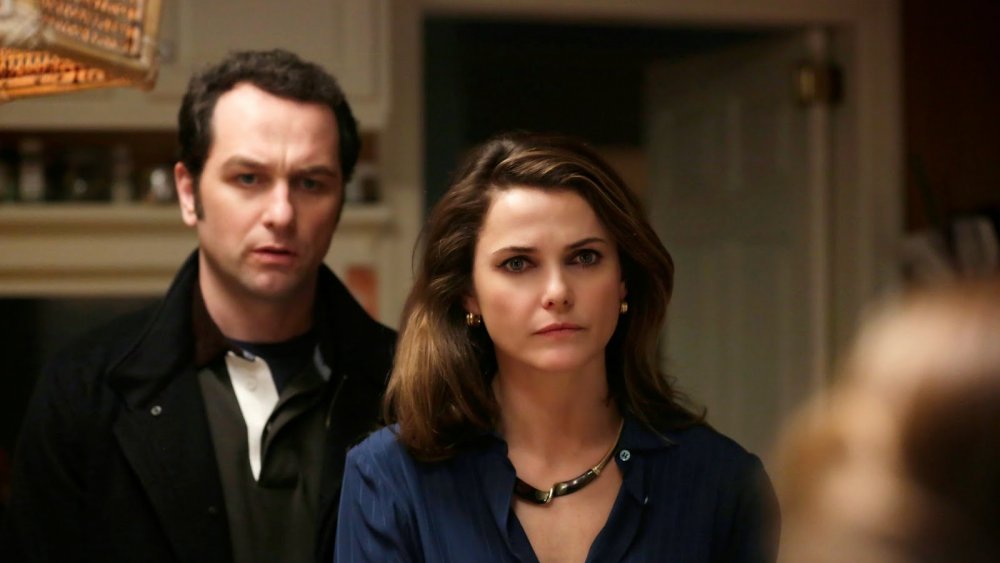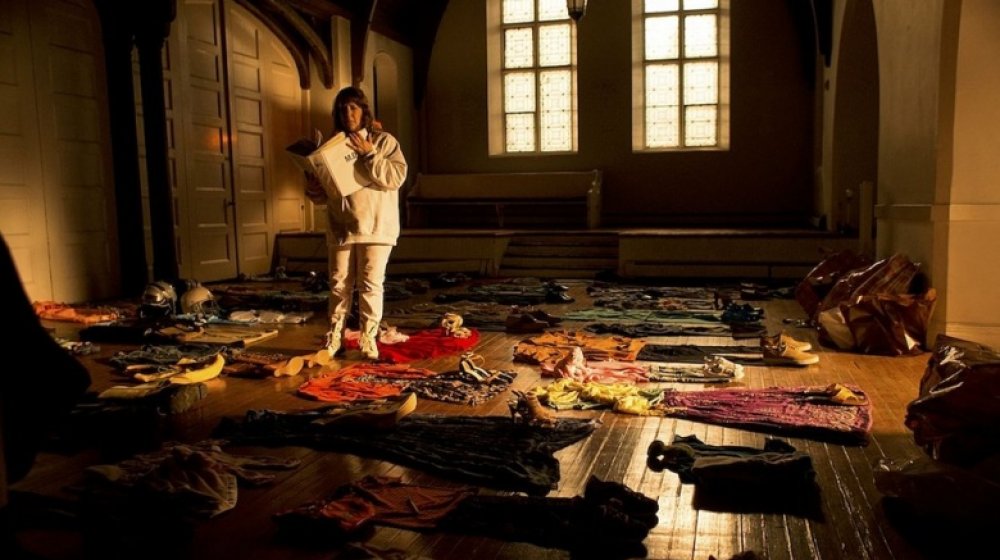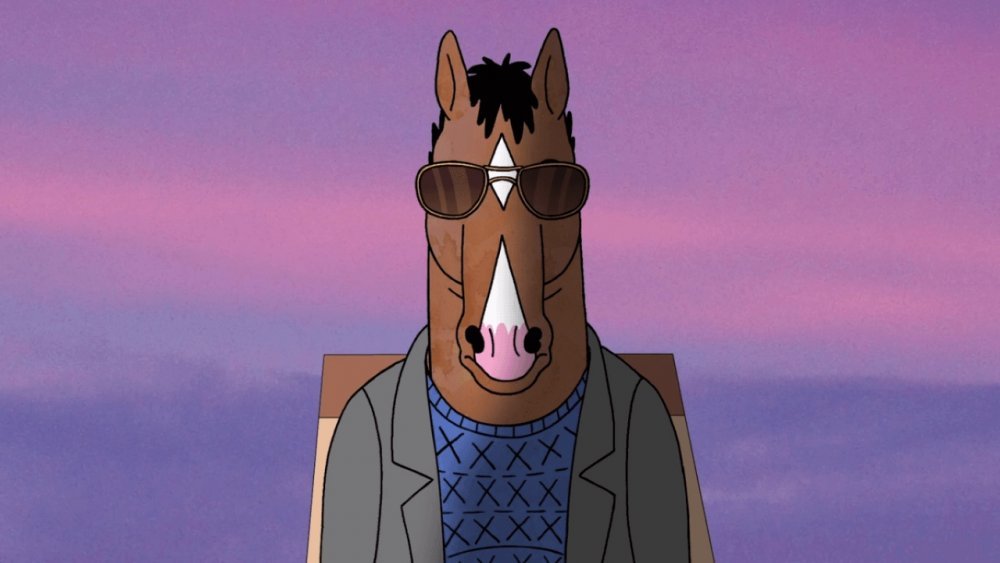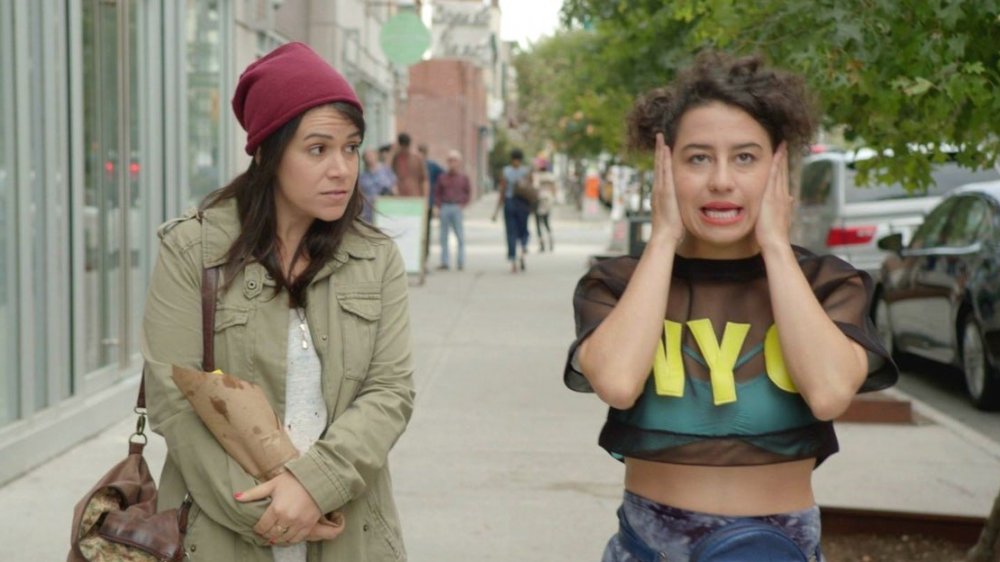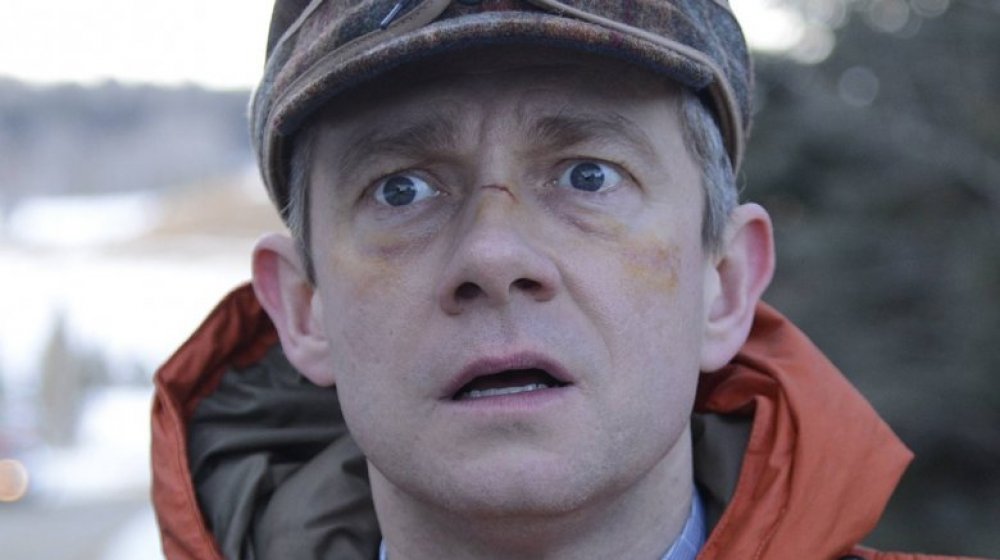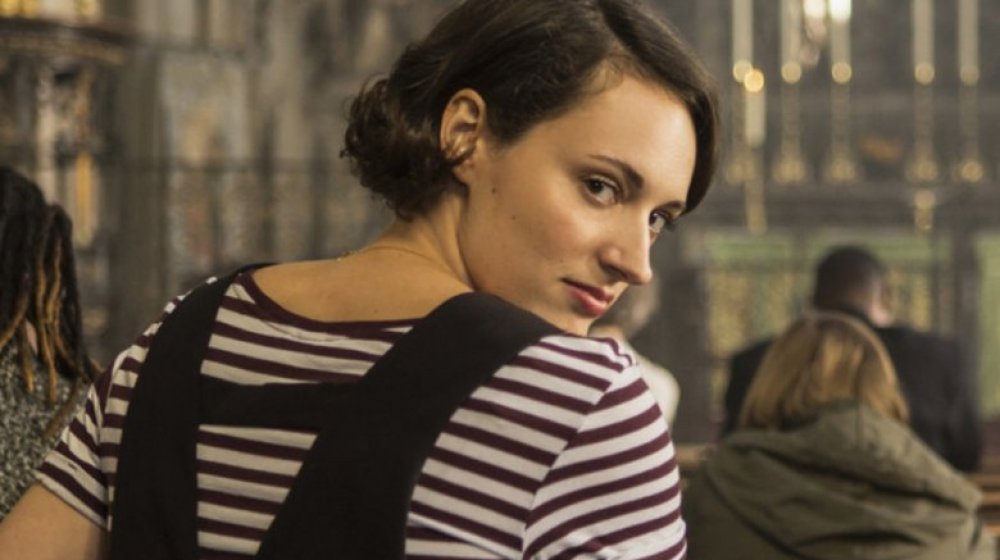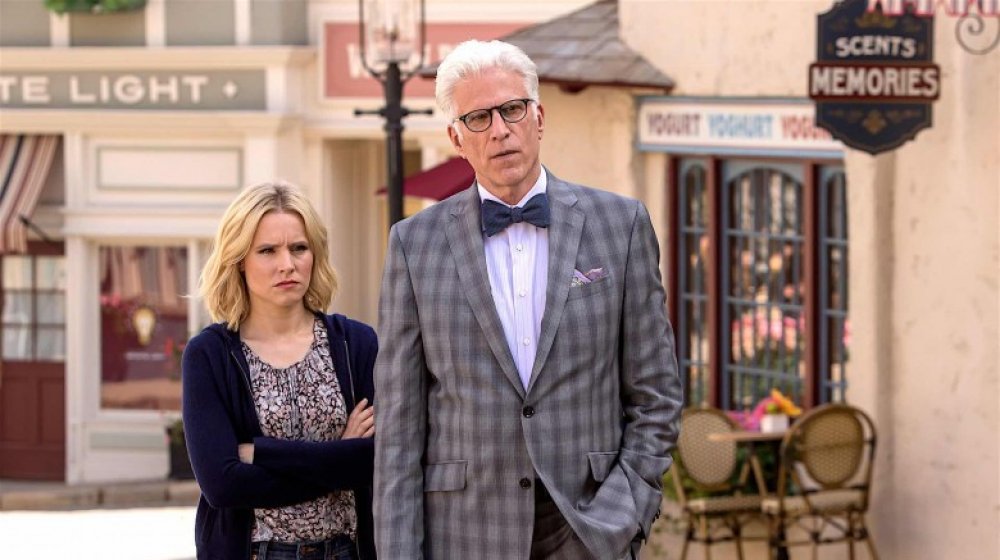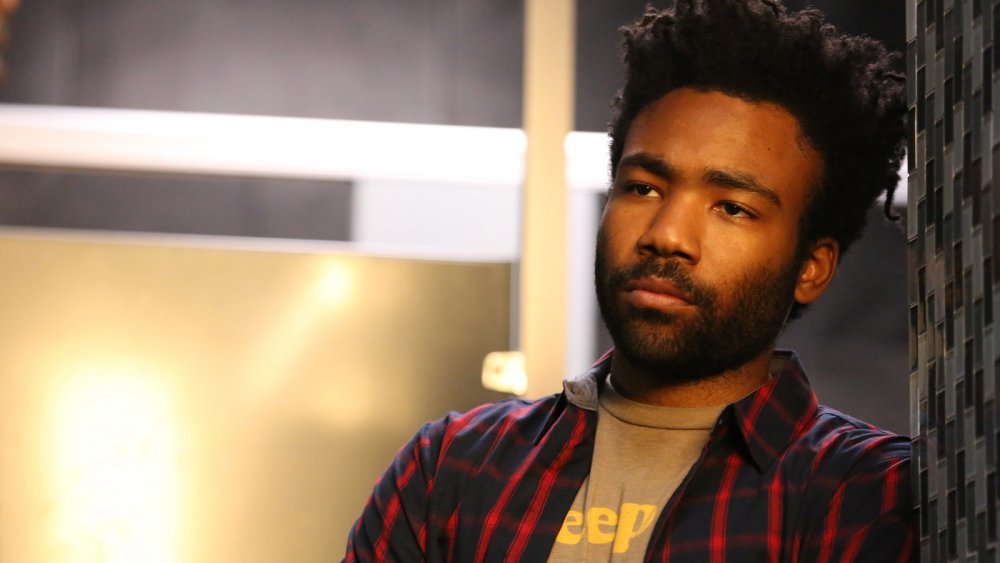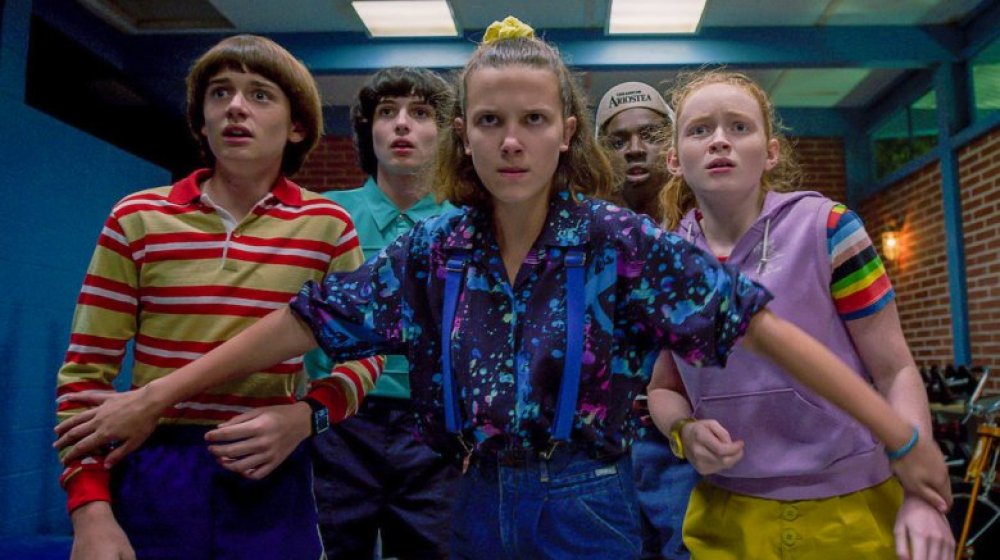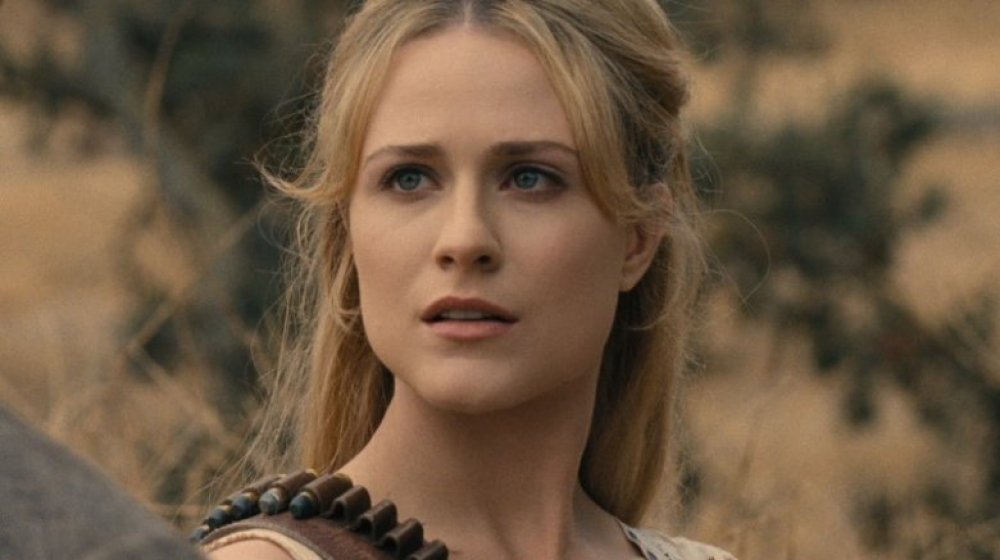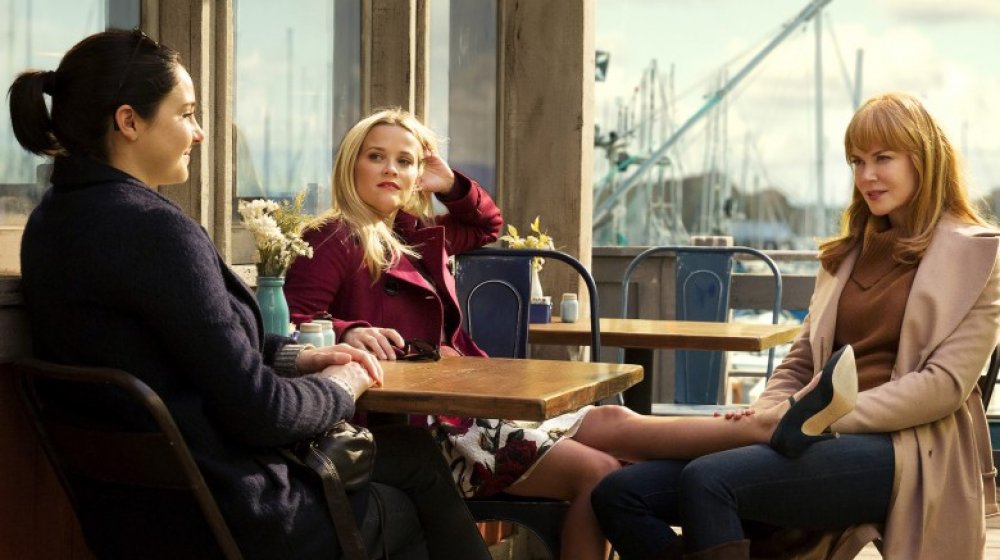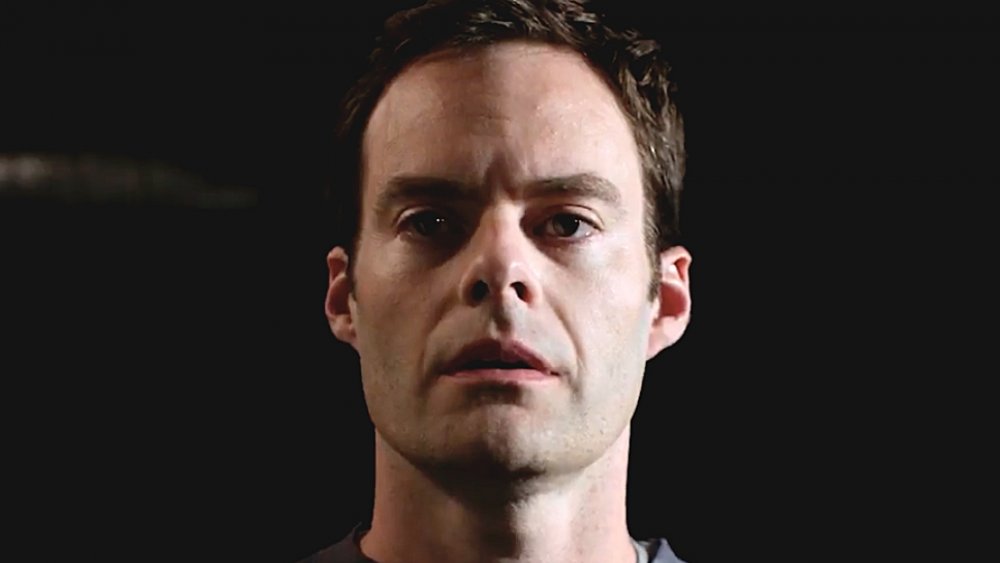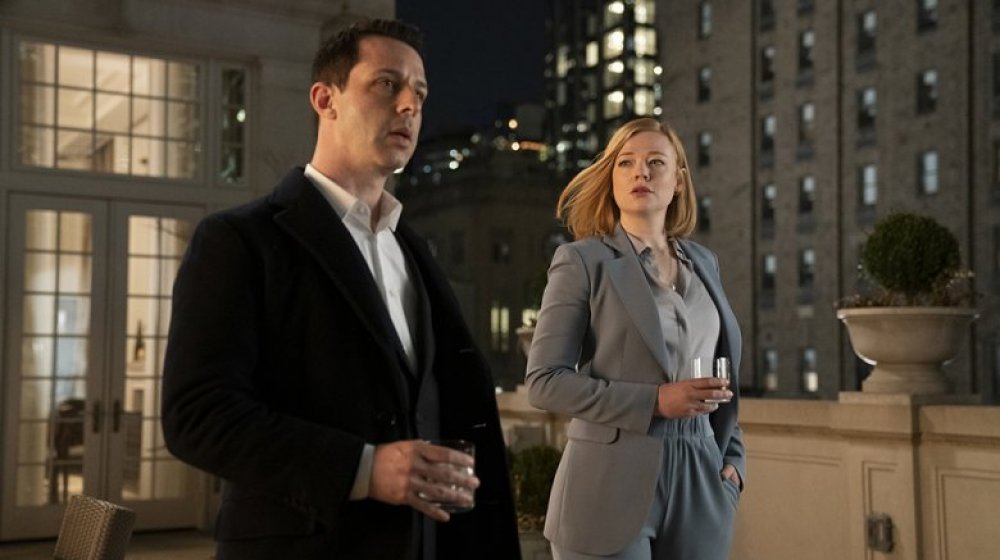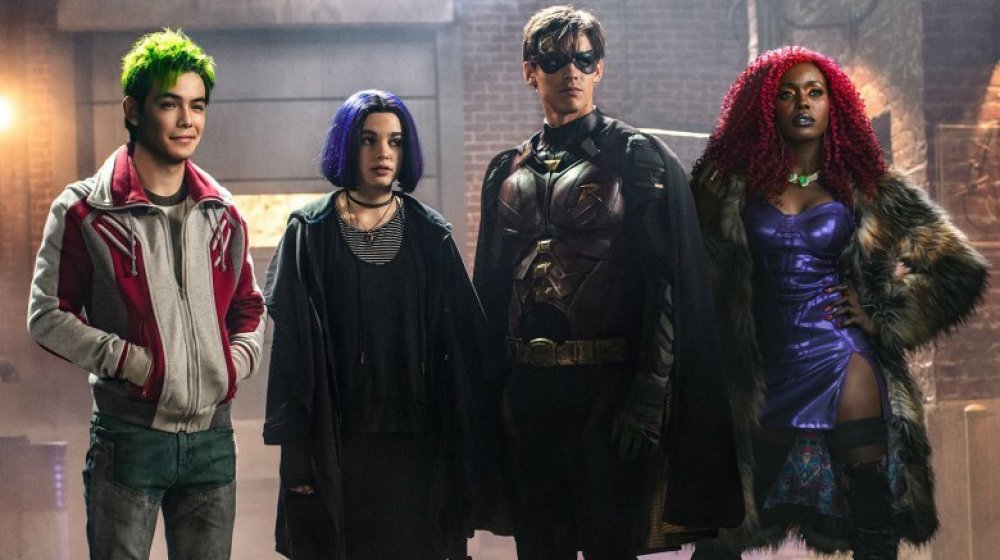The Best TV Shows Of The Last Decade
In the wake of prestigious shows like The Sopranos and The Wire, it was clear early on that the 21st century would see a massive change to the television landscape. And in the years between 2010 and 2020, the small screen seriously outdid itself. Though some of the decade's best shows actually got their start before 2010, the era was marked by some groundbreaking series finales as well as incredible starts, adapting beloved stories and creating new ones for audiences across the world.
From Philadelphia bar owners to Pawnee government officials, from New York ad men to Russian spies, television truly is better than ever, thanks to innovative showrunners, talented casts, and brilliant writing. Though it was hard to narrow down the decade's best offerings, we stand by these choices as the best television shows of the entire decade. Spoilers for each show to follow!
It's Always Sunny in Philadelphia (2005-present)
A show about five deadbeat lowlifes running a bar in South Philadelphia doesn't exactly sound like a comedic goldmine right off the bat, but for better or for worse, FX's It's Always Sunny in Philadelphia has defied all the odds for years. After it got off to a relatively inconspicuous (and super-cheap) start in 2005, the show continued throughout the entire following decade, truly becoming a comedy staple of the 2010s. When it was renewed for its 14th season, it officially tied with The Adventures of Ozzie and Harriet as the longest-running live action sitcom of all time.
So how exactly has Sunny stayed so fresh over nearly 15 years? Thanks to brilliant scripts by co-creators Rob McElhenney, Glenn Howerton, and Charlie Day — who also play Mac, Dennis, and Charlie, respectively — this totally bizarre sitcom has kept things new and exciting even as it enters the 2020s. From its innovative approach to current issues to ill-advised child beauty pageants, from insane board games to the best plane trip of all time, "The Gang" always keeps things interesting, and the series even manages to hit its emotional beats without seeming inauthentic. At the end of the show's 13th season, Mac came out to his father in a gorgeously choreographed dance, proving that Always Sunny will always be relevant, no matter how long it's on the air.
Mad Men (2007-2015)
One of the defining dramatic shows of the entire 21st century thus far has been AMC's Mad Men, which starred Jon Hamm as the enigmatic and mysterious Don Draper, a suave, smooth-talking New York City ad man with secrets to hide. Led by showrunner Matthew Weiner, a veteran of The Sopranos, the rest of Mad Men's cast was rounded out by talented performers like Elisabeth Moss, January Jones, John Slattery, Christina Hendricks, and more, highlighting a group of extraordinary actors who were each given their own complex emotional journeys.
Ultimately, the series covered all of the 1960s, recreating moments like the moon landing, the assassination of JFK, and more, all set against Don Draper's extraordinarily turbulent life. By the end of the show, however, Don's life is in tatters; after betraying his second wife Megan (Jessica Paré), he finds himself alone in California and seemingly contemplating suicide, but just as the series ends, he takes a turn thanks to a tranquil seaside resort. In the story's final moments, we see Don sitting alone on a cliffside, meditating quietly, and then breaking into a mysterious smile... followed by one of Coca-Cola's most famous real-world ads, insinuating that Don himself came up with it. Finding capitalist inspiration during meditation would be a classic Don move, and though the ending is largely ambiguous, it's a perfect finish for Mad Men's overall journey, cementing it as a classic of the decade.
Breaking Bad (2008-2013)
Another staple of the 21st century's Golden Age of Television, AMC's Breaking Bad introduced yet another anti-hero into the television landscape: Walter White (Bryan Cranston), a high school chemistry teacher who turns to a life of crime after receiving a terminal cancer diagnosis. Alongside his former student Jesse Pinkman (Aaron Paul), he starts making meth in Albuquerque, encountering plenty of opposition from other New Mexico criminals, and must fight to keep his growing empire alive. Throughout its run, the show racked up a record number of awards, evening earning a Guinness World Record as the most critically acclaimed show of all time in 2014.
Breaking Bad came to an end in 2013, providing the decade with one of its best and most beloved final seasons, culminating in the critically acclaimed series finale "Felina." In the end, it seemed that Walt got everything that he wanted; after getting to say goodbye to his family, he saves Jesse from captivity and is killed by police before succumbing to his disease. Though some critics thought the ending of the episode was a complete fantasy, for most, it doesn't matter — after five suspenseful and incredible seasons, Breaking Bad's swan song delivered in full, giving fans the most satisfying ending possible.
Parks and Recreation (2009-2015)
As the successor to The Office, NBC's other workplace mockumentary Parks and Recreation had huge shoes to fill. Ultimately, it succeeded by creating an entirely different show and relying on pure positivity rather than cringe humor. The story of a small government department in Pawnee, Indiana, led by the intrepid and overly intense Leslie Knope (Amy Poehler), Parks taught audiences that they could achieve anything they wanted, even if your life and career take some unexpected turns. With a supporting cast rounded out by future stars like Chris Pratt, Aziz Ansari, Aubrey Plaza, and Adam Scott, alongside established stars like Rob Lowe and Rashida Jones, the show always survived on sheer optimism, even as it repeatedly faced cancellation.
Throughout its run, Parks remained one of the most cheerful and sunny shows on television, letting its characters fail, learn, succeed, and grow in realistic ways that rewarded its fans as well as its talented cast. From its many standout moments to its pitch-perfect finale, Parks has earned its place in television history without having to stand in the shadow of The Office at all.
The Walking Dead (2010-present)
Zombies were all the rage during the 2000s, and in 2010, AMC took advantage of the trend with the series premiere of The Walking Dead. Based on a comic book series by Robert Kirkman, Tony Moore, and Charlie Adlard, the show opens on Rick Grimes (Andrew Lincoln) as he wakes up from a coma only to discover that the world has fallen into ruin after a zombie apocalypse. After wandering through a desolate Atlanta, he eventually finds other survivors and must join forces with them to fight against hordes of the undead.
Throughout ten seasons, The Walking Dead has gifted audiences with unforgettable heroes like Rick, Michonne (Black Panther's Danai Gurira), and Glenn (Steven Yeun) — alongside formidable villains like Negan (Jeffrey Dean Morgan) — painting a bleak yet paradoxically optimistic portrait of humanity as they face down the most terrifying threat possible. Thanks to creative storytelling and impeccable action, The Walking Dead has earned a place as one of the most unforgettable shows of the 2010s, and it seems poised to continue for years to come.
Game of Thrones (2011-2019)
When it premiered in 2011, Game of Thrones probably seemed like an unlikely success for HBO. An adaptation of George R.R. Martin's sprawling fantasy series A Song of Ice and Fire, the show, named after the first book in the series, stuck faithfully to Martin's narrative, setting itself in the fictional region of Westeros and telling the story of its most powerful players, all of whom spend the entire series fighting for the Iron Throne. From the Dragon Queen, Daenerys Targaryen (Emilia Clarke) to the power-hungry Cersei Lannister (Lena Headey) to the alleged bastard turned secret royal Jon Snow (Kit Harington), the Iron Throne was up for grabs to any number of qualified candidates, and for years, diehard fans tuned in to see who would win the game in the end.
As it turned out, Game of Thrones ended not with a bang, but with a whimper; thanks to a poorly plotted final season and an unsatisfying inheritor of the throne, fans flocked to the internet to express their extreme displeasure. Still, a disappointing final season doesn't undo Thrones' legacy; as one of the last great examples of "appointment television," Thrones changed TV for the better, and it remains one of the most impressive accomplishments on television in recent memory.
Veep (2012-2019)
There have been plenty of political television shows throughout the years, but few of them have been as cruel, incisive, and hilarious as Veep. The series was led by Julia Louis-Dreyfus as the titular Vice President, Selina Meyer, whose political dreams were crushed at the beginning of the series as she was relegated to the second-place spot alongside an unseen president. Through it all, Veep never shied away from showing the dark underbelly of Washington D.C., from underhanded deals to vicious insults to destructive policies.
Aided and abetted by her equally corrupt team, including "bag man" and eternally loyal right hand man Gary (Tony Hale), Chief of Staff Amy (Anna Chlumsky), communications expert Dan (Reid Scott), speechwriter Mike (Matt Walsh), and arrogant White House liaison Jonah (Timothy Scott), Selina commits constant faux pas, making political fumbles over and over again. Despite the odds, she ends up serving as president of the United States multiple times. Thanks to a tour-de-force performance by Louis-Dreyfus, some of the sharpest writing on television, and a pitch-perfect supporting cast, Veep hit all the right notes, even while it made you concerned about the state of American politics.
Hannibal (2013-2015)
Ever since The Silence of the Lambs swept the Academy Awards in 1992, audiences have been fascinated with author Thomas Harris' elegant cannibal, Dr. Hannibal Lecter. Showrunner Bryan Fuller capitalized on the fictional serial killer with his short-lived yet critically adored series Hannibal, which only ran for three seasons between 2013 and 2015. With Mads Mikkelsen as the title killer and Hugh Dancy as Will Graham, a special investigator working with the FBI who finds himself increasingly caught up in Hannibal's tangled web of mind games and dark indulgences, the show was adored by its fans.
Thanks to Fuller's trademark visual flourishes and creative storytelling, Hannibal made its mark on television as a whole. Even though it was canceled by NBC due to low ratings, it's still regarded as one of the best shows of the modern era. Its legion of Fannibals still pine for more, even though the series finale brought the complex relationship between its protagonists to a perfect crescendo.
The Americans (2013-2018)
Spy thrillers are always popular, and in 2013, FX struck gold with The Americans, a Cold War-set thriller about two Russian spies — Elizabeth and Philip Jennings, played by Keri Russell and Matthew Rhys — masquerading as everyday Americans during one of the most fraught and tense periods in American history. Aside from hiding their true identities from their friends and neighbors, they must also keep their terrible secret from their children, who were born born as American citizens. It doesn't help that their neighbor and good friend Stan Beeman (Noah Emmerich) happens to be an FBI agent.
Throughout six gripping seasons, The Americans perfectly encapsulated the turmoil of the Cold War while telling the personal story of the Jennings, their undercover colleagues, and their friends. Thanks to powerhouse performances by Russell and Rhys (who, incidentally, struck up a romance on set and had a child together in 2016), as well as incisive writing and direction — especially its final season — it lands firmly on the list of the best shows of the 2010s.
The Leftovers (2014-2017)
If two percent of the world's population suddenly disappeared with absolutely no explanation, what do you think might happen? That's the dilemma explored by showrunner Damon Lindelof and his team in The Leftovers, which is based on the novel of the same name by Tom Perrotta. With a cast that included incredible performers like Justin Theroux, Carrie Coon, and Ann Dowd, the show seemed destined to succeed, and it certainly delivered.
Though the show's first season stuck to the plot of the book, the second took a new turn and focused on the town of "Miracle," a rare place that was completely unaffected by the so-called "Sudden Departure." The third season took even more risks. By the time the show ended in 2017, it made an intentionally vague attempt to answer the series' central questions — why were these people taken, and where did they go? — and did so in a brilliant way, confirming its overall legacy as one of the most ambitious and original shows ever to hit the airwaves.
BoJack Horseman (2014-2020)
Animated series for adults populated the airwaves during the first two decades of the 21st century, and though there are plenty of excellent examples, a standout series was Netflix's BoJack Horseman, created by Raphael Bob-Waksberg. Set in a surreal world populated with normal humans as well as anthropomorphic talking animals who act exactly like humans, the show focuses on the title character (voiced by Will Arnett), a washed-up sitcom star who is constantly trying to regain celebrity, having starred in the once-popular series Horsin' Around.
As he plans his return to the public eye, BoJack works with Diane Nguyen (Alison Brie), a ghostwriter he hires to help write his autobiography, all while he haggles with his cat agent Princess Carolyn (Amy Sedaris) and butts heads with his sitcom nemesis Mr. Peanutbutter (Paul F. Tompkins). Despite the seemingly ridiculous premise, Bob-Waksburg and his impeccable voice cast use their platform to address issues like clinical depression and marital strife, proving that there's so much more to BoJack Horseman than initially meets the eye.
Broad City (2014-2019)
There are too few shows that chronicle the pure joys of female friendship, but in 2014, creators and showrunners Abbi Jacobson and Ilana Glazer gifted the world with Broad City, an unflinching exploration of the highs and lows of the particularly intense relationship between their fictional counterparts, also named Abbi and Ilana. The two comedians met while studying at New York City's Upright Citizens Brigade, and after they produced Broad City as a web series, UCB founder Amy Poehler took notice. Before long, the bona fide star was serving as executive producer alongside Jacobson and Glazer when the series moved to Comedy Central to begin its official run.
From sexual mishaps to counterfeit bags to outlandish outfits, Broad City covered every possible part of Abbi and Ilana's lives, relationships, and enduring friendship, leaving no stone unturned (no matter how grotesque). Broad City always pushed the limits, but it also provided honest, emotional moments, giving it a dynamic unlike any other show that aired in the past ten years.
Fargo (2014-present)
Adapting a classic film into a television show can definitely be a tricky endeavor (and lead to middling results), but thanks to excellent scripts and a revolving door of talented actors, showrunner Noah Hawley succeeded with 2014's Fargo, adapted from the award-winning 1996 Coen Brothers film of the same name. The Academy Award-winning duo also lent their names to the project as executive producers, giving it even more prestige.
An anthology series that airs on FX, Fargo features a different cast and focuses on a different story for each season, but it cleverly includes some overlap between the stories to make sure each one is connected — and, of course, every season features plenty of sly Coen references for their diehard fans. With a cadre of actors like Jean Smart, Billy Bob Thornton, Martin Freeman, Kirsten Dunst, Jesse Plemons, Ewan McGregor, and Carrie Coon, audiences will definitely remain riveted by Fargo for however long Hawley keeps the show going. We'll see where he takes us next when Fargo season 4 premieres on FX in 2020.
Fleabag (2016-2019)
Phoebe Waller-Bridge's one-woman show turned television sensation Fleabag only ended up running for two seasons (on both BBC and Amazon), but it made an undeniably explosive impact during that short amount of time. In the first season of this bleak half-hour comedy, which stars Waller-Bridge herself as "Fleabag" — a single, depressed, and uninhibited London woman with little direction in her life — the main character struggles with her best friend's untimely death while she tries to maintain relationships with her difficult family and series of boyfriends. Throughout it all, she constantly breaks the fourth wall, treating the viewer like her best friend from whom she hides absolutely nothing. Waller-Bridge was originally reluctant about a second season, but audiences are lucky she went for it; in 2019, the showrunner released a thoughtful, emotional, and beautifully crafted second season, in which Fleabag forms a confusing relationship with a priest (Andrew Scott).
Between its engaging storytelling, its talented roster of series regulars and guest stars (which includes everyone from Olivia Colman to Kristin Scott Thomas), and Waller-Bridge's beautifully unique voice, Fleabag is one of the best-reviewed shows to hit the airwaves in years. At the 2019 Emmys, it dominated the conversation, even taking the top prize from Veep's final season. Waller-Bridge says she's definitely done with the character now, and while that might be disappointing for some fans, it also means that Fleabag can remain impeccable, unchanged, and endlessly rewatchable.
The Good Place (2016-2020)
In the opening moments of Mike Schur's The Good Place, the audience meets Eleanor Shellstrop (Kristen Bell), who has just been given some good news and some bad news by Michael (Ted Danson): she recently died, but on the upside, she made it into "The Good Place." As she spends more time in paradise, Eleanor starts to realize that something just isn't right, and eventually, she confesses to her "soulmate" Chidi (William Jackson Harper) that there's been some sort of mistake, and she actually doesn't belong in the Good Place.
That's just the first twist of The Good Place's debut season, and anyone who sits down and watches this innovative show will be rewarded through every unbelievable twist and turn it takes. Alongside TV veterans like Bell and Danson, the cast is mostly made up of fresh faces, including Harper, Manny Jacinto (who plays "Florida dirtbag" Jason, who himself sometimes masquerades as a silent Buddhist monk), D'arcy Carden (who plays Janet, and all-knowing sort of human Alexa device), and former British television presenter Jameela Jamil (who plays the oblivious socialite Tahani). Though it might feel like you're in the Bad Place when you hear that The Good Place is calling it quits with the end of its fourth in 2020, Schur and his team certainly know what they're doing, and have gifted audiences with one of the smartest, most inventive sitcoms in recent memory along the way.
Atlanta (2016-present)
Ever since his time on Community, Donald Glover has been a talent to watch, and he proved himself on the small screen once again in 2016 with FX's Atlanta, a show in which he stars as well as writes, directs, and produces. As Earn (Glover) tries to make his way in Atlanta, he realizes that his talented cousin Alfred (Bryan Tyree Henry), who raps as "Paper Boi," might have what it takes to make it. If Paper Boi can make it with Earn's help, then Earn might be able to reunite with his daughter and estranged girlfriend.
Over just two seasons, Atlanta has become one of the most talked-about shows of the decade, earning (pun intended) universal praise for Glover's performance and behind-the-scenes work. In the show's second season, subtitled Robbin' Season, Glover took even more risks — who could forget the creepy, riveting "Teddy Perkins" episode? — and they've paid off handsomely, even making Glover the first African American artist to win an Emmy for directing a comedy series. As long as Glover wants to stay in Atlanta, fans and critics alike will definitely tune in, and anyone who's watched the show just can't wait to see what he does next.
Stranger Things (2016-present)
Netflix has produced plenty of hugely successful original shows, but few have been as heavily discussed and stirred up as much excitement as Stranger Things, a show from the Duffer Brothers that first hit the streaming service in 2016. Set in the seemingly sleepy town of Hawkins, Indiana, Stranger Things introduced viewers to frightening underworlds like the "Upside Down" and monsters like the Demogorgon. Its story began with the sudden disappearance of young Will Byers (Noah Schnapp) and the efforts by his friends and family to find him. As they delve deeper into the unexpected and sinister world that lies beneath Hawkins, Will's friend Mike (Finn Wolfhard) befriends a mysterious girl who goes by Eleven (Millie Bobby Brown), and who turns out to have surprising special powers.
A nostalgic show lovingly set during the 1980s, Stranger Things has earned praise and adoration for its clever plotting, hearty sense of humor, and outstanding young cast (all of whom have skyrocketed to fame since the show debuted). Alongside this new generation of actors, veterans like Winona Ryder, Paul Reiser, and David Harbour deliver excellent performances as well, making sure that the adults of Stranger Things are just as compelling as the kids. After dominating the second half of the decade, Stranger Things shows no signs of slowing down — especially after a cliffhanger capped off its third season in 2019 — and viewers will likely be hanging out in Hawkins for years to come.
Westworld (2016-present)
Based on Michael Crichton's 1973 film of the same name, HBO's Westworld transports audiences to a fantastical, futuristic theme park inhabited by friendly "hosts" — super realistic robots designed to provide guests with a premium experience. Visited by the wealthiest people in the world, it's an endless smorgasboard of carefully designed experiences. But as the android hosts begin to discover what they are, the natural order is quickly displaced and the park is thrown into disarray. As far as its creative team and its cast, Westworld is pretty stacked — it was created by Christopher Nolan's brother Jonathan alongside his wife Lisa Joy, and it stars venerated actors like Sir Anthony Hopkins, Evan Rachel Wood, James Marsden, Ed Harris, Thandie Newton, and more.
Throughout its two seasons, Westworld has kept fans on their toes with its twists, turns, and intricate plotting, weaving throughout its complex narrative at such a brisk pace that the premise never feels stale. Thanks to frequent Easter eggs and plenty of unsolved mysteries, the show is endlessly rewatchable and ripe for discussion, and as Westworld continues, fans will surely continue to unpack even more of its many secrets.
Big Little Lies (2017-2019)
When HBO decided to adapt Liane Moriarty's smash hit novel Big Little Lies, the network set out to assemble an astounding cast of all-stars to tell this gripping story, and they certainly succeeded. Led by Nicole Kidman (who would go on to win an Emmy for her role), Reese Witherspoon, Shailene Woodley, Zoe Kravitz, and Laura Dern as the core characters — backed up by supporting players like Adam Scott and Alexander Skarsgard — Big Little Lies moved its story from the book's original Australian setting to the picturesque shores of Monterey, where no marriage, parent, or relationship is what it seems.
The first season of Big Little Lies attracted universal acclaim and plenty of accolades, and after receiving rave reviews across the board, HBO decided to up the ante in season 2, moving beyond Moriarty's source material and adding acting heavyweight Meryl Streep to the main cast. Though the second season might not have been as tightly plotted as the first, fans were still delighted to see the "Monterey Five" return to their screens — ultimately, it's safe to say that if these powerful women want to reunite in California again, audiences will likely welcome them with open arms.
Barry (2018-present)
After making a name for himself on Saturday Night Live and in films like Trainwreck, Bill Hader struck out on his own in 2018 to create Barry, an HBO series he crafted alongside television veteran Alec Berg. In the show's first season, audiences are introduced to Barry Berkman, a Marine veteran turned hitman who travels from Ohio to Los Angeles for a "job" — however, once he arrives, he finds himself entranced by a local acting class led by Gene Cousineau (Henry Winkler), and considers giving up his life of crime and murder to try and become a serious actor. However, it's not long before his past catches up with him, and as he keeps attempting to assimilate himself into the Los Angeles theater scene, he must work with his co-conspirator Fuchs (Stephen Root) to keep his new friends safe.
Thanks to its innovative premise, incredible supporting characters like Noho Hank (Anthony Carrigan), and a breathtaking lead performance by Hader (who has won multiple Emmy Awards for the role), Barry has become a modern comedy classic, pushing the boundaries with every new season. Before this, Hader was probably best known for characters like Stefon and impressions of celebrities like Vincent Price, but thanks to Barry, Hader has officially become one of Hollywood's most versatile and talented players, both behind and in front of the camera.
Succession (2018-present)
HBO's Succession starts off with a story familiar to anyone who's studied Shakespeare. In this modern take on King Lear, the patriarch of a successful media empire, Logan Roy (Brian Cox), announces he will step down as the CEO of Waystar Royco as his health declines, leaving his children to squabble over his empty throne. Kendall (Jeremy Strong), who works closely in the company alongside his father, seems to be the top contender for the crown, but after Logan's announcement, his siblings — including the irresponsible Roman (Kieran Culkin), the conniving Siobhan (Sarah Snook), and the oft-forgotten Connor (Alan Ruck) — pop out of the woodwork to lay claim to their father's role in the company.
Succession's first season performed reasonably well, marking another hit for HBO, but as viewers started to discover this savvy, dark, and incredibly funny show (which was, unfortunately, often confused with Showtime's Billions), the second season hit the airwaves in 2019, giving fans even more drama than the first outing. No matter what the future holds for the Roy family, there's no doubt that Succession's future is bright, and even over two short seasons, it has earned its place as one of the standout shows of the entire decade.
Titans (2018-present)
As more and more consumers "cut the cord" and get rid of cable, it's clear that streaming is the future, and DC's Titans, found exclusively on the comic publisher's streaming service, DC Universe, is a perfect example of what TV could look like going forward. The series stars Brenton Thwaites, Anna Diop, Teagan Croft, and others as the titular Titans, a group of young superheroes struggling to master and harness their considerable power while also protecting their home city of San Francisco. Throughout the series, familiar DC characters like Robin and Wonder Girl, along with other members of the original Titans, reappear to team up with the younger generation, creating a seemingly unstoppable force.
Thanks to its talented core cast and mix of familiar characters with new creations, Titans has proven to be an excellent example of DC's efforts on the small screen. As it continues into a new decade, it's sure to keep audiences thrilled and entertained as the Titans continue their fight, adding yet another worthy superhero story to the pop culture landscape.
